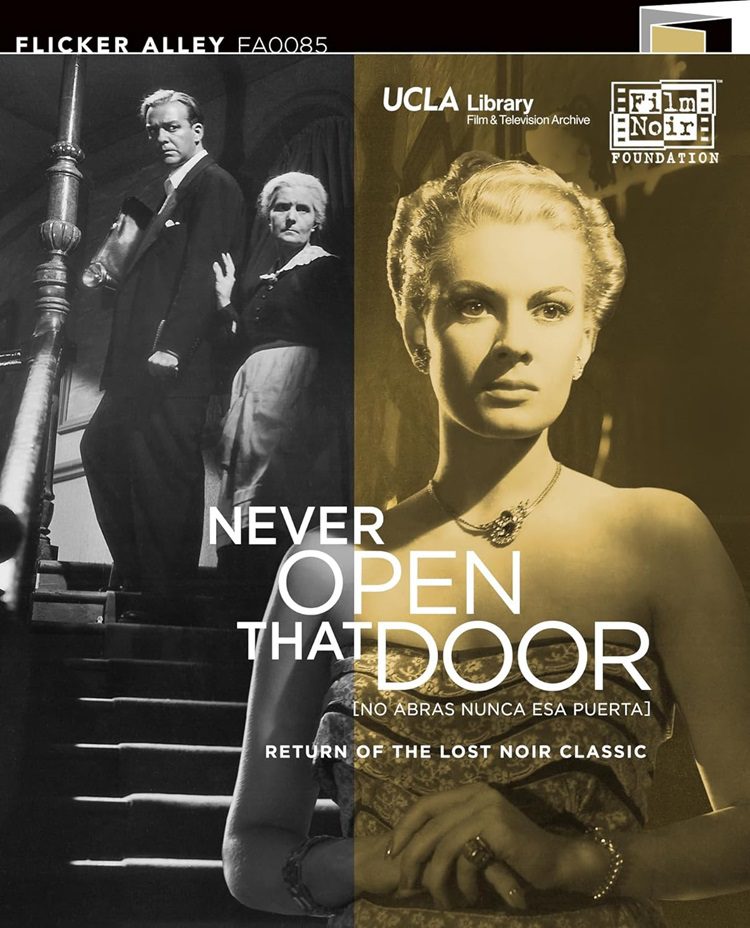
Film noir is universal. It reaches all over the world. The United States isn’t the only country that can produce great noir. And 1952’s Never Open the Door (No Abras Nunca Esa Puerta), directed by Argentine filmmaker Carlos Hugo Christensen is a mostly great example of that. Originally intended as a three-part anthology based on stories by Cornell Woolrich, the two films that make up the feature consist of two stories of humanity against inhumanity.
Buy Never Open That Door Blu-rayThe first, Someone on the Phone (Anguish), is a creepy if conventional noir about revenge, where a brother gets retribution for his gambling sister’s death against her blackmailer. It ends with a cliched but still eerie shock with the blackmailer’s familiar phone ring.
In The Hummingbird Returns Home (Pain), the stronger of the two, tells the tale of a blind widow whose beloved son (a whistling criminal) comes back to seek refuge with her and her niece. In order to stop him and his accomplice from robbing a bank, she stops at nothing to save him from making a big mistake and getting him to change his ways, which leads to grim results.
Despite the first story’s typical twists and turns, it’s the second story that makes the whole film worth watching. However, the cinematography in both is stark and unforgiving. It heightens the suspense and makes the characters’ dilemmas seem much richer.
If you love noir and don’t mind reading subtitles, then this great release from Flicker Alley is for you.
Bonus features:
- If I Should Die Before I Wake (Si muero antes de despertar) – a rare archival conservation scan of the third part of the trilogy
- Audio commentary by author and film historian Guido Segal
- Cornell Woolrich Fear Has No Borders (2024) – a featurette produced by Steven C. Smith and writer and film historian Alan K. Rode about Woolrich’s life and work
- Preserving Memory: Fernando Martín Peña on Argentine Cinema (2024) – an interview with Pena as he talks about the rise of Argentinian cinema starting the 1930’s.
- It also comes with a souvenir booklet with rare photographs and posters, but no essays.